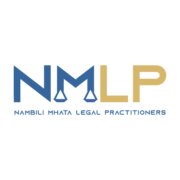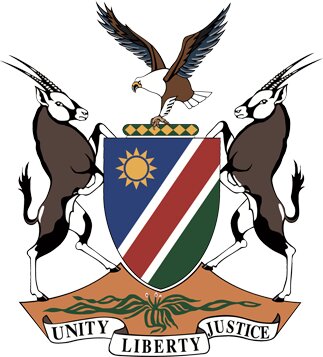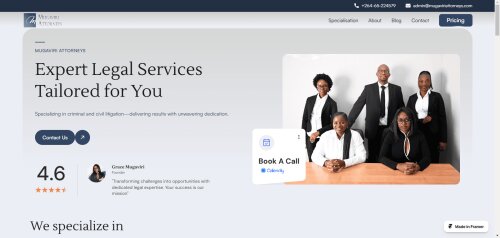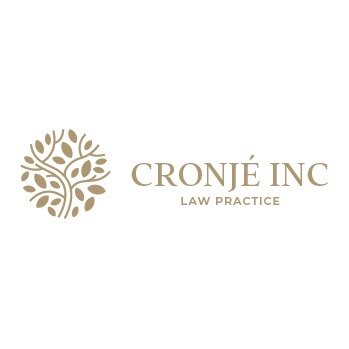Best Natural Resources Lawyers in Namibia
Share your needs with us, get contacted by law firms.
Free. Takes 2 min.
Or refine your search by selecting a city:
List of the best lawyers in Namibia
About Natural Resources Law in Namibia
Namibia is endowed with a rich array of natural resources, including minerals such as diamonds, uranium, copper, and gold, as well as significant marine and freshwater fisheries, and diverse ecosystems. The country's natural resources play a crucial role in its economy, providing opportunities for investment, employment, and development. Natural Resources Law in Namibia governs the exploration, extraction, and use of these resources, aiming to ensure they are managed sustainably and equitably.
Why You May Need a Lawyer
Legal assistance may be required in several situations involving natural resources in Namibia:
- Land Ownership and Use: Disputes may arise regarding land ownership and the right to use land for natural resource exploration.
- Mining and Exploration Contracts: Negotiating and drafting contracts with mining companies can be complex and often require legal oversight to protect your interests.
- Environmental Compliance: Ensuring compliance with environmental regulations can be challenging, especially in high-stakes extraction projects.
- Disputes and Litigation: Conflicts over resource rights, environmental damage, or contractual disagreements may necessitate legal action.
- Regulatory Affairs: Understanding and navigating the regulatory landscape for natural resource exploitation requires legal expertise.
Local Laws Overview
Namibia's legal framework for natural resources is comprehensive and includes several key aspects:
- The Minerals (Prospecting and Mining) Act: Governs the rights to prospect and mine minerals in Namibia.
- The Environmental Management Act: Establishes guidelines for sustainable practices and protection of the environment during resource extraction.
- The Marine Resources Act: Regulates the use of marine resources, ensuring conservation and sustainable utilization.
- The Water Resources Management Act: Addresses the use and conservation of water resources in Namibia.
- The Communal Land Reform Act: Controls access to and management of communal lands, which can often involve natural resources.
Frequently Asked Questions
What are my rights to mine minerals on my private land?
Your rights can be complex and typically require formal applications for exploration and mining licenses, even on private land.
How do I obtain a mining license?
You need to apply through the Ministry of Mines and Energy, fulfilling all the legal requirements outlined in the Minerals Act.
What environmental regulations must I comply with?
Compliance with the Environmental Management Act is essential, which involves conducting Environmental Impact Assessments (EIAs) before exploiting resources.
Can foreigners own mining rights in Namibia?
Yes, but they must comply with specific legal and governmental regulations that ensure foreign investments align with national interests.
What constitutes illegal resource extraction?
Any extraction activity conducted without the necessary governmental approvals and licenses is considered illegal.
How can communal land affect my resource rights?
Resource rights on communal lands are managed differently and require compliance with both national laws and communal policies.
How do I handle disputes over land and resource rights?
Disputes can often be resolved through negotiation, mediation, or as a last resort, litigation. Legal guidance is recommended.
Are there incentives available for sustainable resource management?
The government offers various incentives for projects that demonstrate sustainability and environmental stewardship.
What role does the government play in natural resource management?
The government sets policies, grants licenses, and monitors compliance to ensure sustainable and equitable use of resources.
Is it possible to appeal a denied resource exploitation application?
You may file an appeal or seek a review of the decision, often requiring thorough legal grounds and representation.
Additional Resources
For more information or assistance regarding natural resources in Namibia, consider these resources:
- Ministry of Mines and Energy: The primary governmental body over mining rights and energy-related concerns.
- Ministry of Environment, Forestry and Tourism: Oversees many aspects of environmental policy and sustainable development.
- Namibian Chamber of Environment: Offers resources and information on environmental best practices and policies.
- Legal Assistance Centre (LAC): A Namibian organization dedicated to providing legal services and advocacy.
Next Steps
If you need legal assistance, consider the following steps:
- Consult a Specialist Lawyer: Seek out a lawyer experienced in natural resources law to discuss your specific needs and options.
- Gather Documentation: Collect all relevant documents related to your situation, such as contracts, licenses, and communications.
- Contact Governmental Bodies: Engage with the appropriate ministries for guidance and clarification on procedures.
- Mediation Services: In cases of dispute, consider mediation services as a potentially less adversarial approach to resolving issues.
- Stay Informed: Keep updated on changes in the law and new regulations that could impact your resource rights or responsibilities.
Lawzana helps you find the best lawyers and law firms in Namibia through a curated and pre-screened list of qualified legal professionals. Our platform offers rankings and detailed profiles of attorneys and law firms, allowing you to compare based on practice areas, including Natural Resources, experience, and client feedback.
Each profile includes a description of the firm's areas of practice, client reviews, team members and partners, year of establishment, spoken languages, office locations, contact information, social media presence, and any published articles or resources. Most firms on our platform speak English and are experienced in both local and international legal matters.
Get a quote from top-rated law firms in Namibia — quickly, securely, and without unnecessary hassle.
Disclaimer:
The information provided on this page is for general informational purposes only and does not constitute legal advice. While we strive to ensure the accuracy and relevance of the content, legal information may change over time, and interpretations of the law can vary. You should always consult with a qualified legal professional for advice specific to your situation.
We disclaim all liability for actions taken or not taken based on the content of this page. If you believe any information is incorrect or outdated, please contact us, and we will review and update it where appropriate.
Browse natural resources law firms by city in Namibia
Refine your search by selecting a city.
















